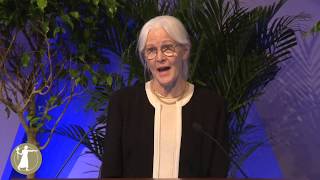
Sharon R. Long, PhD
“It’s wonderful to work on symbiosis. It’s amazing to discover the intricate ways in which a host and microbe communicate, the molecular conversations and cellular gymnastics that they go through as they create a whole novel organ in which cells of both kinds adopt fates that are very far from their origin.”
Sharon R. Long is the Steere-Pfizer Professor of Biological Science in the Department of Biology at Stanford University, and the Principal Investigator of the Long Laboratory at Stanford.
Long is a pioneering molecular biologist whose research on the symbiosis between plants and nitrogen-fixing bacteria explains how some plants thrive without nitrogen fertilizer, making agriculture and natural environments more sustainable.
Using a combination of genetics, biochemistry, chemistry, cell biology, physiology and other approaches, Long has made critical discoveries regarding the symbiotic relationship between Rhizobium bacteria and legume plants, which include key crops such as alfalfa and soybeans. Her groundbreaking discovery of “nod” genes, which allow bacteria to send signals to host plants, opened new fields of study for other researchers around the world.
Long used this discovery to launch new research showing how plants “interpret” bacterial signals through novel mechanisms, and she pioneered genomic investigations of the symbiosis. Her ongoing research has revealed critical processes of interaction between plants and microbes, as well as information that enhances our understanding of bacterial gene expression and plant development.
Throughout her career, Long has also served as a scientific leader, inspiring not just the science of plant-microbe interactions but also, as one of the first women in her field, paving the way for numerous students and professionals to follow in her footsteps.





